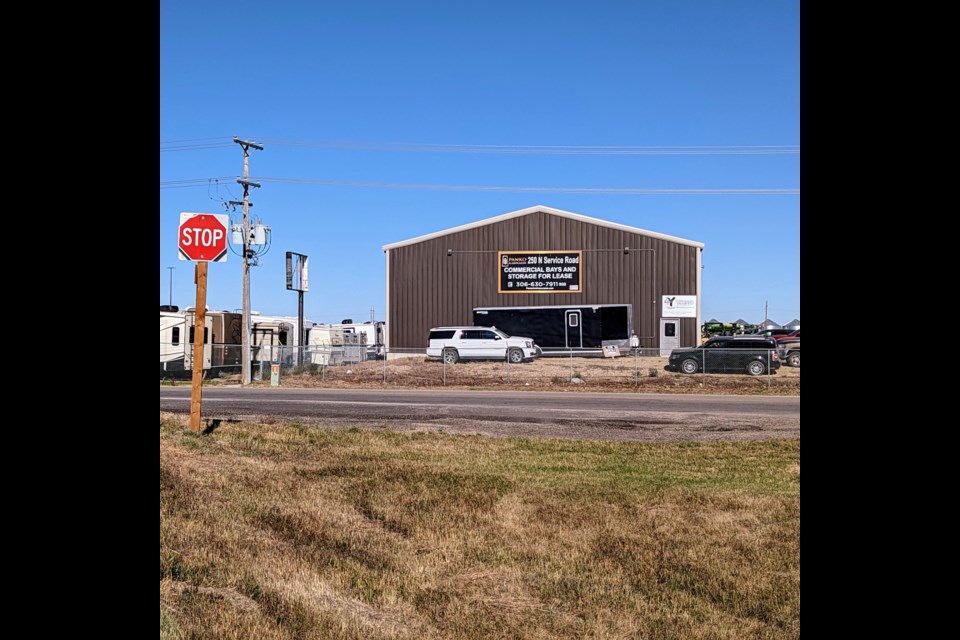Gayland Panko, owner of real estate firm Panko & Associates, is appealing Saskatchewan Assessment Management Agency (SAMA) property tax assessments that he says are not based on data or common sense, causing tax rates to fluctuate and making it impractical to invest in Moose Jaw properties.
Panko told MooseJawToday.com that SAMA is using a statistical model developed by Robert Gloudemans, a mass appraisal specialist whose company is headquartered in Arizona.
The problem, Panko explained, is that SAMA is applying the model using too few data points.
Statistical models are designed to take a carefully selected set of representative data points and produce information such as average values, trend lines, average deviation from the norm, and more. All statistical models include calculations of the minimum number of data points needed for the model to work, along with criteria for selecting those points.
Panko shared an email in which he asked Gloudemans to help solve the problem.
“In discussions with SAMA, we determined that they could only use three sales in the last four-year period,” Panko wrote. “I feel like your model can't work properly with insufficient data.”
Gloudemans response: “SAMA is one of my long-standing clients and I can't comment on their valuation techniques or practices in specific instances.”
During an appeals hearing on Sept. 30 in front of the Saskatchewan Municipal Board (SMB), a member of the board asked SAMA’s representative, “If I’ve got my figures right, here, in between a 2,700-square-foot warehouse and then as compared to a 2,900-square-foot warehouse, so similar sizes, you’ve got a cap rate of 3.09 as opposed to 6.37?”
The topic can be confusing, but the board member was essentially asking why SAMA’s property valuations would have the owner of the smaller warehouse paying more than twice as much property tax as the owner of the larger warehouse.
According to Panko, an experienced real estate professional, a 3.09 cap rate is like the highest possible prestige building downtown in a major city like Vancouver — not a small-town warehouse.
“At the end of the day, it’s borne out by the data,” SAMA’s lawyer responded. “It’s borne out by this statistical testing SAMA did… . It’s not unfair, and it doesn’t necessarily mean that there’s any error in the assessment at all.”
Panko said SAMA insists that their assessments are merely a result of data inputted to a proven model — however, when the model is questioned, SAMA points out that their assessors are authorized to use their expert judgment to appraise properties according to the legislation.
“So, which is it?” he said. “Is it just their model, or are they using their judgment? I bought a property in 2021 that is now valued more than twice as high by SAMA’s latest assessment. That means any business plan I might have had for that property now doesn’t work, because I’m paying more than twice as much tax as I had planned for.
“And next year, because they aren’t using enough data points, it could drop all the way back down again. Who knows?”
The property Panko referenced is a North Service Road warehouse. A foreclosure, it sat on the market for three years before he bought it. The year after his purchase, SAMA assessed it at two-and-a-half times what he paid for it, blindsiding him with much higher property taxes.
"I couldn't sell it for the price they assessed it as," he said. "I wouldn't buy it at that price, I'd have to be crazy. And now I have all these clients coming to me to sell properties they suddenly can't afford the taxes on, and no one is going to buy them."
Panko claims Moose Jaw’s real estate market has become a hot potato because of the unpredictability and unfairness of tax assessments.
The three sales SAMA used to determine the value of the north service road warehouses were a twice-sold former tire shop on Main Street — one of those sales is outside of the assessment period and should not have been included — and the new Moose Jaw Ford dealership.
“We’re talking about warehouses on the north service road, like, (crappy)-looking industrial base, versus the brand-new Ford dealership … . How on earth can you use a $10 million Ford dealership and call it a warehouse?
“That was it,” Panko said, “that was the only two data points they had.”
Panko thought he had a slam-dunk appeal case. Instead, he and his wife have been fighting the assessment model for two years now.
“A lot of these other towns — Swift Current, Prince Albert, Saskatoon, Regina — they all do their own assessments. They’ve said they won’t use SAMA.”
Moose Jaw’s city council voted in 2015 to make a long-term deal with SAMA, locking them in until 2030.
SAMA has a seemingly limitless legal fund to fight appeals, Panko noted, and most people trying to appeal their assessments are forced to give up.
Panko said he isn’t going to halt his appeal. He will take it as far as he can, despite the system being against him.




